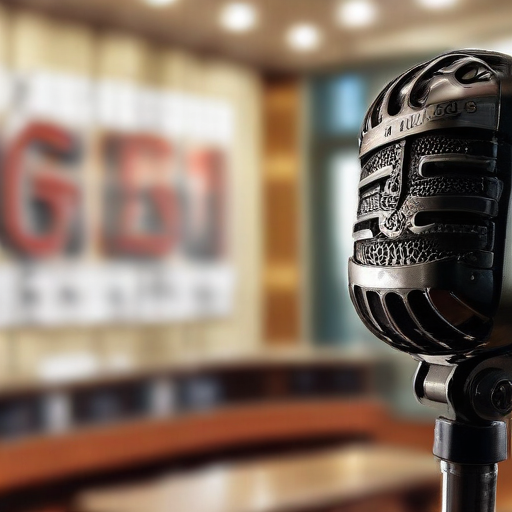President-elect Donald Trump has announced his intention to appoint Kari Lake, a former Arizona television anchor and prominent supporter of his administration, as the next director of Voice of America (VOA), a government-funded international broadcaster. This announcement, made via social media, has the potential to ignite significant debate about the direction and integrity of the agency, which has been a contentious topic during Trump’s presidency.
Many journalists within VOA express deep concern regarding Lake’s possible role, given her history of opposing mainstream media and promoting election denial. “We’re hoping that the guardrails will hold,” said an employee who chose to remain anonymous.
The central question now is the role of VOA and its allegiance. As part of the U.S. Agency for Global Media, which oversees various broadcasters, VOA’s mission has been to provide reliable journalism and promote democratic values globally. Historically viewed as a counter to foreign propaganda, VOA maintains a strict “firewall” protecting its editorial independence from U.S. government influence.
While Trump’s announcement has drawn attention, the process of appointing a new director is more complex than a simple social media declaration. Trump’s post suggested that Lake would work closely with the new head of the U.S. Agency for Global Media, a position yet to be filled.
In previous years, Trump’s appointee, Michael Pack, led to a tumultuous period within VOA, filled with political appointments, attempts to meddle in news coverage, and concerns about bias against the administration. The fallout led to legislative reforms intended to ensure the agency’s independence, requiring a majority vote from the International Broadcasting Advisory Board for the appointment or removal of a VOA director.
Currently, Michael Abramowitz serves as the VOA director, having been appointed just a few months ago. He emphasizes the importance of providing accurate and objective news, countering the politically charged narrative pushed by Trump regarding media integrity.
Critics fear that Lake’s potential appointment reflects a desire by Trump to elevate politically aligned figures in taxpayer-funded broadcasting, significantly affecting public perception and credibility. Experts warn that any shift towards authoritarian control over VOA could undermine American democracy.
“The laws meant to prevent the network from targeting U.S. citizens are very hard to enforce in practice,” said Dr. Kate Wright, highlighting the delicate balance of independence that VOA must maintain. Abramowitz, the current director, has committed to a smooth transition of leadership.
The path to Lake’s possible directorship is complicated. First, Trump must nominate someone to oversee the U.S. Agency for Global Media, then the advisory board will make recommendations regarding the VOA director position. Although this board leans Republican, its structure is designed to minimize undue political influence.
The unfolding situation serves as a critical moment for VOA and its commitment to unbiased journalism. As this story develops, it reflects the ongoing debate about how government influences media and the essential role of independent reporting in a democratic society.
Overall, there’s hope that the established safeguards will remain intact, allowing VOA to continue its vital mission of providing clear and factual reporting worldwide. The commitment to independent journalism is essential, ensuring citizens have access to information that upholds democratic values, despite potential political shifts.
